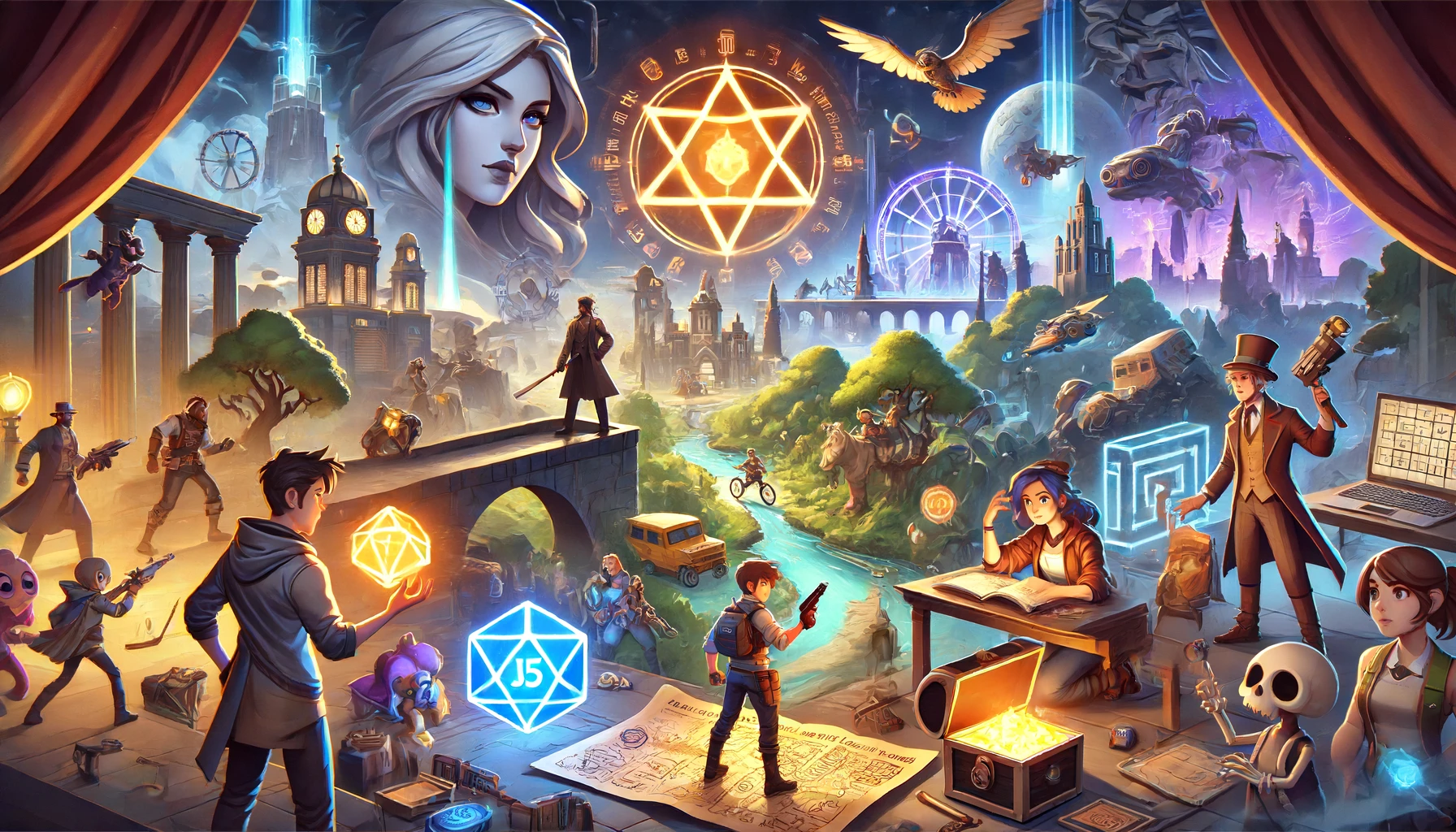The gaming industry is a constantly evolving landscape, with new genres and technologies emerging at a rapid pace. Despite this dynamic environment, one genre has stood the test of time: adventure games. From the earliest text-based adventures to today’s visually stunning narratives, adventure games continue to captivate players worldwide. But why do these games remain so relevant? Let’s explore the enduring appeal of adventure games and their place in the modern gaming world.
A Rich History of Storytelling
One of the critical reasons adventure games have remained popular is their strong emphasis on storytelling. From the classic “Zork” series to contemporary titles like “Life is Strange,” adventure games offer immersive narratives that draw players into their worlds. These games prioritize plot development, character arcs, and emotional engagement, providing experiences that resonate deeply with players.
The Power of Immersion
Adventure games excel at creating immersive environments that transport players to different worlds. Through detailed graphics, atmospheric sound design, and engaging storylines, players are encouraged to lose themselves in the game. This level of immersion is a powerful tool for escapism, allowing players to experience new realities and perspectives.
Evolving Gameplay Mechanics
While the core of adventure games remains rooted in storytelling and exploration, the genre has evolved to incorporate new gameplay mechanics. Modern adventure games often blend elements from other genres, such as puzzle-solving, action, and even role-playing. This hybrid approach keeps the gameplay fresh and engaging, attracting a broader audience.
The Rise of Episodic Content
Episodic content has become a significant trend in adventure games, with developers releasing games in chapters or episodes. This format keeps players engaged over extended periods, allowing for more profound narrative development and sustained interest. Games like “The Walking Dead” series by Telltale Games have successfully utilized this model, creating anticipation and excitement for each new episode.
Community and Collaboration
Adventure games often foster strong communities of players who share their experiences, theories, and solutions to in-game puzzles. This collaborative spirit enhances the gaming experience as players come together to solve challenges and discuss plot twists. Online forums, social media groups, and fan websites contribute to a vibrant community that keeps the genre alive and thriving.
Emotional Connection
The emotional depth of adventure games sets them apart from many other genres. By focusing on character development and intricate storylines, these games create powerful emotional connections with players. This emotional engagement leads to memorable experiences that stay with players long after they’ve finished the game.
Innovation and Experimentation
Adventure game developers are known for their willingness to experiment with new ideas and technologies. This innovation drives the genre forward, keeping it relevant and exciting. From virtual reality experiences to interactive storytelling techniques, adventure games continue to push the boundaries of what’s possible in gaming.
Educational and Cultural Value
Adventure games often incorporate historical, cultural, and educational elements, making them valuable tools for learning and exploration. Games like the “Assassin’s Creed” series, while primarily action-oriented, include detailed historical settings and events that educate players about different periods and cultures. This blend of entertainment and education enhances the appeal of adventure games to a diverse audience.
Replayability and Longevity
The intricate plots and multiple endings of many adventure games encourage replayability. Players often return to these games to explore different story paths, uncover hidden secrets, and achieve various endings. This longevity ensures that adventure games remain relevant and enjoyable long after their initial release.
Nostalgia and Legacy
For many players, adventure games hold a special place in their hearts due to nostalgia. Classic titles like “Monkey Island” and “Myst” evoke fond memories and have left a lasting legacy in the gaming world. This sense of nostalgia helps maintain interest in the genre as both old and new players seek out these timeless experiences.
The Role of Technology
Advancements in technology have greatly enhanced the adventure gaming experience. Improved graphics, realistic sound effects, and sophisticated AI have made adventure games more immersive and lifelike. Additionally, the rise of mobile gaming and cloud gaming services has made these games more accessible to a broader audience.
The Future of Adventure Games
As the gaming industry continues to evolve, adventure games will too. With the integration of cutting-edge technologies like virtual reality, augmented reality, and artificial intelligence, the future of adventure games looks incredibly promising. These innovations will provide new ways for players to interact with game worlds and stories, ensuring that the genre remains at the forefront of the gaming industry.
Features of Adventure Games
To understand why adventure games are still relevant, it’s essential to look at their key features:
- Engaging Storylines: Adventure games are renowned for their compelling narratives that keep players hooked from start to finish.
- Immersive Environments: Detailed graphics and sound design create worlds that players can get lost in.
- Puzzle-Solving Elements: Challenging puzzles add depth to the gameplay, requiring players to think critically and creatively.
- Character Development: Strong character arcs and emotional depth lead to meaningful player connections.
- Innovative Gameplay: The genre frequently incorporates new mechanics and technologies to stay fresh and exciting.
Benefits of Playing Adventure Games
Playing adventure games offers numerous benefits:
- Enhanced Problem-Solving Skills: The puzzles and challenges in adventure games can improve cognitive abilities and critical thinking.
- Emotional Engagement: The deep storytelling and character connections provide a rich emotional experience.
- Cultural Awareness: Many adventure games incorporate historical and cultural elements, broadening players’ horizons.
- Stress Relief: The immersive nature of these games offers a form of escapism, providing a break from the pressures of daily life.
Conclusion
Adventure games have carved out a unique and enduring niche in the gaming industry. Their focus on storytelling, immersion, and innovation ensures they remain relevant and beloved by players of all ages. As technology continues to advance, adventure games will undoubtedly evolve, offering new and exciting experiences for generations to come. Whether you’re a seasoned gamer or new to the genre, adventure games provide an unparalleled experience that is both entertaining and enriching.
Adventure games are more than just a genre; they are a testament to the power of storytelling and the human desire for exploration and connection. So, the next time you’re looking for a game that offers more than just mindless entertainment, consider diving into the world of adventure games. You might find yourself on an unforgettable journey.






